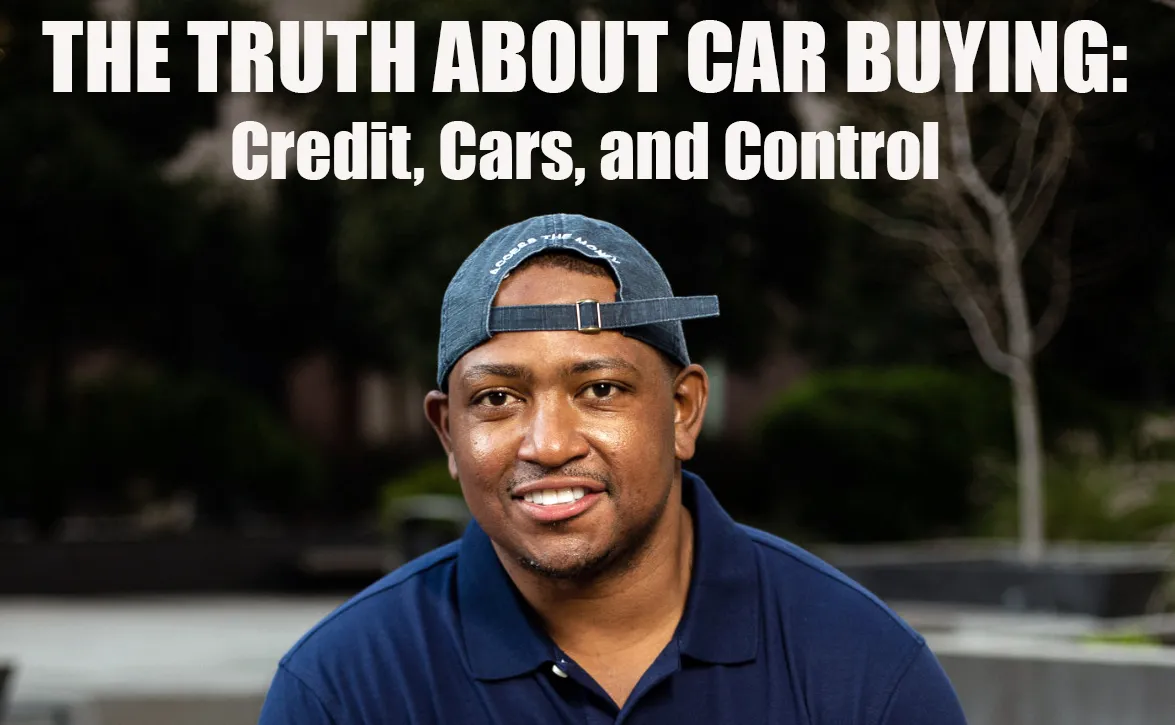
The Truth About Car Buying: Credit, Cars, and Control
By Flame Newton
“It’s not about the car, it’s about the contract.”
That’s one of the first things I tell people when they sit down with me to talk about buying a vehicle. You see, everybody falls in love with the car the shine, the horsepower, the leather seats, the smell of “new.” But too many folks don’t read the fine print. And when you don’t read the fine print, the dealership ends up owning you long before you own that car.
Let’s break this down, because if you’re reading Midwest Dealers Association Auto Magazine, you’re probably either shopping for a car, thinking about refinancing, or you’re curious why your credit plays such a massive role in what you drive and how much you pay.
Why Credit Rules the Car Game
Here’s the truth: the car lot doesn’t care how much you want the ride. The only thing they care about is whether the bank will approve you for the loan. And the bank only cares about one thing your credit.
According to Experian’s 2024 Automotive Finance Report, the average interest rate on a new car loan was 6.9%for people with good credit, but a brutal 21% for people with poor credit. That means the same car can cost you thousands more, just because of your score.
1 in 5 car buyers in the U.S. are paying more than they should simply because their credit profile isn’t positioned right.
Think about that. Two people walk onto the lot, look at the same exact car, and drive away with two completely different payments. Why? Because one of them prepared their credit and the other didn’t.
Auto Credit Scores vs. Regular Credit Scores
Here’s where most people get it twisted. You might look at your credit app and say, “I got a 680, I’m good.” But when the dealership pulls your score, it comes back different. Why? Because the auto industry uses a special version of your credit score called an Auto-Enhanced Score.
While your FICO 8 or FICO 9 score might say 680, your Auto Score might show 630 (or even lower).
Auto Scores weigh things like previous car loans, late payments on autos, and repossessions heavier than a regular score.
So if you had a repo five years ago, it might not hurt your credit card approvals too much, but when it comes to getting a car loan, that repo is like a scarlet letter.
What a Strong Auto Credit Profile Looks Like
If you want to walk into the dealership and walk out with no money down, you need to have a credit profile that screams “low risk.” That usually means:
A 700+ Auto Score (not just your FICO).
At least two open revolving accounts (credit cards) in good standing.
A previous auto loan with perfect history (banks love seeing that you’ve already proven you can handle a car note).
Low utilization (ideally under 30% of your available credit).
When your profile looks like that, the dealership isn’t just happy to give you the keys they’re competing to finance you.
The Benefits of a Down Payment
Now, let’s keep it real: even with strong credit, a down payment is never a bad move. Here’s why:
Lower Monthly Payment: Every $1,000 you put down usually drops your monthly note by about $15-20.
Less Interest Over Time: You’re borrowing less, which means you’re paying less interest.
Instant Equity: With cars losing about 20% of their value the first year, a down payment can help you avoid being “upside down” right away.
But don’t get it twisted dealerships love down payments because it makes their approval process easier. If you can qualify with no money down, that means your credit is working for you, not against you.
What Happens If You Miss a Payment?
Here’s where too many people mess up. You buy the car, you love it, but then life happens. Maybe you’re late on a payment or two. Let me tell you what really happens:
Late Payments: Even one payment reported 30 days late can drop your credit score by 100 points or more.
Repossession: If you fall too far behind, lenders can repossess your car and that repo can stay on your credit for seven years.
Deficiency Balance: Even after they take the car, if it sells for less than you owed, you still have to pay the difference.
That’s why I always say: “Don’t buy the car you want, buy the car you can afford.”
The Pros and Cons of Car Buying
Pros:
You build credit with every on-time payment.
You get ownership once the loan is paid off.
You may qualify for lower insurance rates.
Cons:
Cars depreciate fast (average 15–20% in the first year).
High interest rates if your credit isn’t strong.
Risk of repossession if you fall behind.
Leasing, on the other hand, can sometimes be a smarter option if you want lower payments and plan to switch cars every few years. But leases come with mileage restrictions and no equity at the end.
My Story, My Lesson
I don’t speak on this from theory I speak from experience. I’m Flame Newton, author of The School of Credit and La Escuela de Crédito. I went from prison for aggravated identity theft and bank fraud to being recognized by the Library of Congress as the only author in history to have two books on the American credit system.
I know both sides of the game. I know how credit can be used the wrong way, and I know how powerful it is when you use it the right way.
That’s why I teach. That’s why I write. That’s why I’m here in Midwest Dealer’s Association Auto Magazine, talking directly to you. Because whether it’s a car, a house, or a business, credit is the fuel. And if you don’t understand it, you’ll keep overpaying, falling behind, or losing out.
Final Word: Don’t Just Drive, Drive Smart
At the end of the day, the car you drive should be a blessing, not a burden. It should take you to work, take your kids to school, and take your dreams further down the road not take food off your table because the note is choking your budget.
So remember these key points:
Know your Auto Score, not just your FICO.
Build a strong credit profile so you can qualify for the best terms.
Don’t be afraid to put money down it’s an investment in peace of mind.
And above all, buy a car that keeps you free, not a car that keeps you trapped.
As I always say:
“Credit isn’t about what you drive today. It’s about how you live tomorrow.”
If you want more game, pick up my book The School of Credit. Because once you master credit, you don’t just buy cars you buy freedom.
And if you want to stay connected, learn more, or even reach out, I make it simple:
📲 Follow me on Facebook, Instagram, Twitter, Tik Tok and LinkedIn all under the handle Flame Newton.
